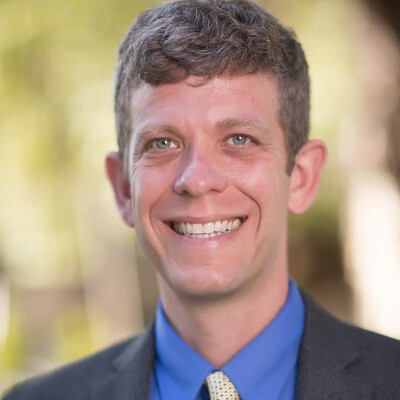Background and Purpose: The North Carolina General Assembly recently enacted Session Law 2023-134. This legislation provided funding to the North Carolina Area Health Education Centers Program (NC-AHEC) to develop and implement five Rural Interprofessional Clinical Teaching Hubs (Teaching Hubs) incorporating two of more professions across the state. The purpose of this Lightening Talk is to describe a four-way collaboration between the North Carolina legislature, NC-AHEC, community-based practices, and institutions of higher education to address workforce development in rural communities.
Description: At the end of this Lightening talk, participants will be able to: 1) Explain characteristics of North Carolina General Assembly Session Law 2023-134; 2) Describe the processes utilized by NC-AHEC to drive practice-led creation of the Teaching Hubs across North Carolina; and 3) Summarize the assessment plan to generate real-world evidence on implementation experiences of the Teaching Hubs. The Lightening Talk will provide knowledge to learners through integration of short, impactful activities that engage the audience in generating ideas for addressing team-based workforce development in rural communities in conjunction with new knowledge dissemination. The talk will encourage learners to actively engage through reflection fostering a deeper understanding of the concepts.
In support of improving patient care, this activity is planned and implemented by The National Center for Interprofessional Practice and Education Office of Interprofessional Continuing Professional Development (National Center OICPD). The National Center OICPD is accredited by the Accreditation Council for Continuing Medical Education (ACCME), the Accreditation Council for Pharmacy Education (ACPE), and the American Nurses Credentialing Center (ANCC) to provide continuing education for the healthcare team.
As a Jointly Accredited Provider, the National Center is approved to offer social work continuing education by the Association of Social Work Boards (ASWB) Approved Continuing Education (ACE) program. Organizations, not individual courses, are approved under this program. State and provincial regulatory boards have the final authority to determine whether an individual course may be accepted for continuing education credit. The National Center maintains responsibility for this course. Social workers completing this course receive continuing education credits.
The National Center OICPD (JA#: 4008105) is approved by the Board of Certification, Inc. to provide continuing education to Athletic Trainers (ATs).
This activity was planned by and for the healthcare team, and learners will receive Interprofessional Continuing Education (IPCE) credit for learning and change.


Physicians: The National Center for Interprofessional Practice and Education designates this live activity for AMA PRA Category 1 Credits™. Physicians should only claim credit commensurate with their participation.
Physician Assistants: The American Academy of Physician Assistants (AAPA) accepts credit from organizations accredited by the ACCME.
Nurses: Participants will be awarded contact hours of credit for attendance at this workshop.
Nurse Practitioners: The American Academy of Nurse Practitioners Certification Program (AANPCP) accepts credit from organizations accredited by the ACCME and ANCC.
Pharmacists and Pharmacy Technicians: This activity is approved for contact hours.
Athletic Trainers: This program is eligible for Category A hours/CEUs. ATs should claim only those hours actually spent in the educational program.
Social Workers: As a Jointly Accredited Organization, the National Center is approved to offer social work continuing education by the Association of Social Work Boards (ASWB) Approved Continuing Education (ACE) program. Organizations, not individual courses, are approved under this program. State and provincial regulatory boards have the final authority to determine whether an individual course may be accepted for continuing education credit. The National Center maintains responsibility for this course. Social workers completing this course receive continuing education credits.
IPCE: This activity was planned by and for the healthcare team, and learners will receive Interprofessional Continuing Education (IPCE) credits for learning and change.
Learners can claim CE credit by completing the Daily Evaluation.




